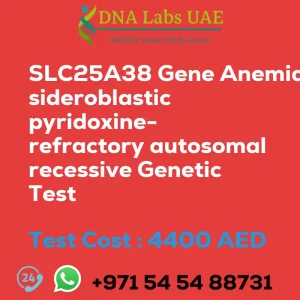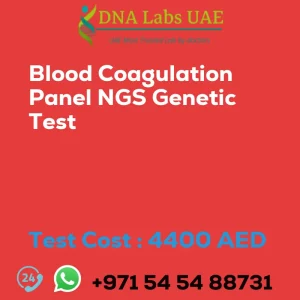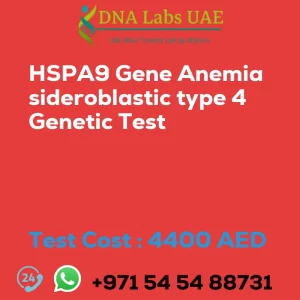MIXING STUDIES – APTT Test
Test Name: MIXING STUDIES – APTT Test
Components:
- Fibrinogen
- Thrombin Time
- APTT
- Mixing studies
Price: 660.0 AED
Sample Condition: 6 mL whole blood in 2 Blue Top (Sodium Citrate) tubes. Mix thoroughly by inversion. Transport to Lab within 4 hours. If this is not possible, make PPP within 1 hour of collection as follows: Centrifuge sample at 3600 rpm for 15 min. & transfer supernatant to a clean plastic tube. Centrifuge this supernatant again at 3600 rpm for 15 min. & finally transfer the supernatant (PPP) to 1 labelled clean plastic screw capped vial. FREEZE IMMEDIATELY. Ship frozen. DO NOT THAW. Overnight fasting is preferred. Duly filled Coagulation Requisition Form (Form 15) is mandatory.
Report Delivery: Sample Wed / Sat by 11 am; Report Next day
Method: Photo-optical Clot Detection
Test type: Disorders of Coagulation
Doctor: Hematologist
Test Department:
Pre Test Information: Overnight fasting is preferred. Duly filled Coagulation Requisition Form (Form 15) is mandatory. It is recommended that patient discontinues Heparin for 1 day and Oral Anticoagulants for 7 days prior to sampling as these drugs may affect test results. Discontinuation should be with prior consent from the treating Physician.
Test Details:
The APTT (Activated Partial Thromboplastin Time) test is a laboratory test used to evaluate the coagulation pathway in the blood. It measures the time it takes for blood to clot after certain clotting factors are activated. In certain cases, the APTT test may yield abnormal results that cannot be easily explained. This could be due to the presence of an inhibitor or an abnormal clotting factor.
To determine the cause of the abnormal results, a mixing study is performed. During a mixing study, the patient’s plasma is mixed with an equal amount of normal plasma (from a healthy individual) and the APTT is retested. If the abnormal results are corrected after the mixing, it suggests that the abnormality is due to a deficiency or inhibitor present in the patient’s plasma. On the other hand, if the abnormal results persist even after mixing with normal plasma, it suggests the presence of an abnormal clotting factor in the patient’s plasma.
The mixing study helps in distinguishing between factor deficiencies and inhibitors. If the results are corrected after mixing, further tests may be conducted to identify the specific factor deficiency or inhibitor present. If the results remain abnormal, additional tests may be required to identify the specific clotting factor abnormality.
Overall, mixing studies are an important tool in the diagnosis and management of coagulation disorders, helping healthcare professionals determine the underlying cause of abnormal APTT test results.
| Test Name | MIXING STUDIES – APTT Test |
|---|---|
| Components | *Fibrinogen*Thrombin Time*APTT*Mixing studies |
| Price | 660.0 AED |
| Sample Condition | 6 mL whole blood in 2 Blue Top (Sodium Citrate) tubes. Mix thoroughly by inversion. Transport to Lab within 4 hours. If this is not possible, make PPP within 1 hour of collection as follows: Centrifuge sample at 3600 rpm for 15 min. & transfer supernatant to a clean plastic tube. Centrifuge this supernatant again at 3600 rpm for 15 min. & finally transfer the supernatant (PPP) to 1 labelled clean plastic screw capped vial. FREEZE IMMEDIATELY. Ship frozen. DO NOT THAW. Overnight fasting is preferred. Duly filled Coagulation Requisition Form (Form 15) is mandatory. |
| Report Delivery | Sample Wed / Sat by 11 am; Report Next day |
| Method | Photo-optical Clot Detection |
| Test type | Disorders of Coagulation |
| Doctor | Hematologist |
| Test Department: | |
| Pre Test Information | Overnight fasting is preferred. Duly filled Coagulation Requisition Form (Form 15) is mandatory. It is recommended that patient discontinues Heparin for 1 day and Oral Anticoagulants for 7 days prior to sampling as these drugs may affect test results. Discontinuation should be with prior consent from the treating Physician. |
| Test Details |
The APTT (Activated Partial Thromboplastin Time) test is a laboratory test used to evaluate the coagulation pathway in the blood. It measures the time it takes for blood to clot after certain clotting factors are activated. In certain cases, the APTT test may yield abnormal results that cannot be easily explained. This could be due to the presence of an inhibitor or an abnormal clotting factor. To determine the cause of the abnormal results, a mixing study is performed. During a mixing study, the patient’s plasma is mixed with an equal amount of normal plasma (from a healthy individual) and the APTT is retested. If the abnormal results are corrected after the mixing, it suggests that the abnormality is due to a deficiency or inhibitor present in the patient’s plasma. On the other hand, if the abnormal results persist even after mixing with normal plasma, it suggests the presence of an abnormal clotting factor in the patient’s plasma. The mixing study helps in distinguishing between factor deficiencies and inhibitors. If the results are corrected after mixing, further tests may be conducted to identify the specific factor deficiency or inhibitor present. If the results remain abnormal, additional tests may be required to identify the specific clotting factor abnormality. Overall, mixing studies are an important tool in the diagnosis and management of coagulation disorders, helping healthcare professionals determine the underlying cause of abnormal APTT test results. |








